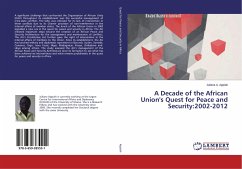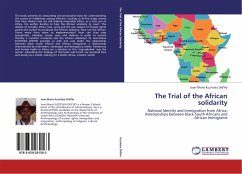A significant challenge that confronted the Organisation of African Unity (OAU) throughout its establishment was the successful management of intra-state conflicts. The OAU was criticised for its lack of intervention in these conflicts due to its Charter provision of non-interference in the internal affairs of member states. The lunch of the African Union in 2002 signalled a new era in the quest for peace and security in Africa. The AU initiated important steps toward the creation of an African Peace and Security Architecture for the management and maintenance of conflicts. The AU's Constitutive Act further gave the right of intervention in the internal affairs of members to the Union. Since its establishment, the AU has lunched military and diplomatic operations in Burundi, Sudan, Somalia, Comoros, Togo, Ivory Coast, Niger, Madagascar, Kenya, Zimbabwe and Libya among others. The study assessed the AU's management of the African Peace and Security Architecture since its formationto see what has been achieved via interventions and what remains problematic in the quest for peace and security in Africa.








